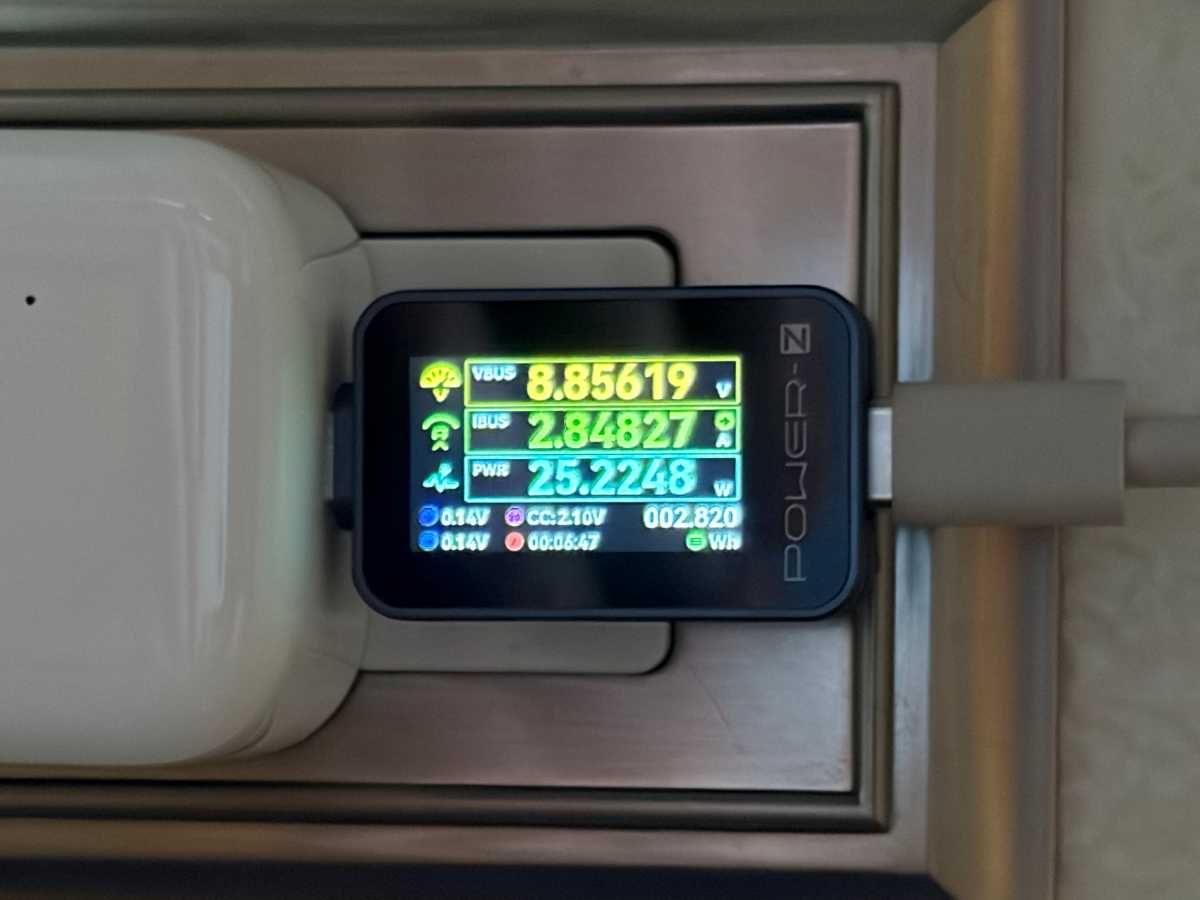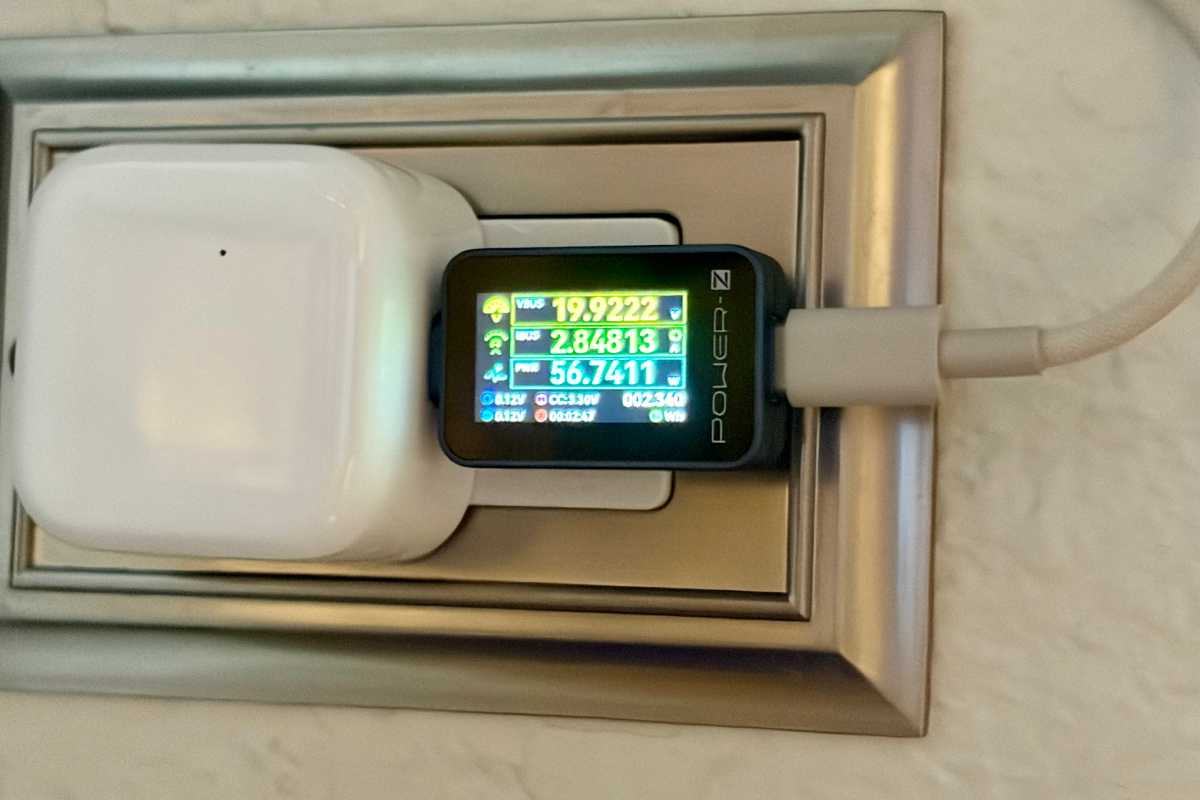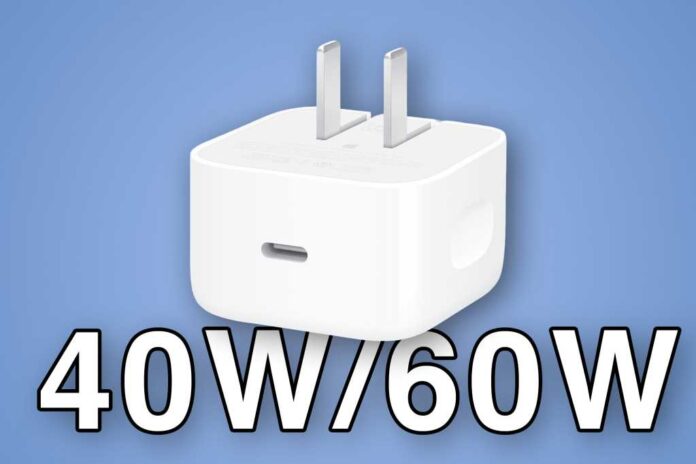When Apple launched the brand new iPhone 17 and iPhone 17 Professional/Max, it highlighted their even sooner fast-charging talents. With an acceptable USB-C charger that may ship at the least 40 watts, it might cost as much as 50 % in simply 20 minutes, the place prior iPhones took half-hour (50 % longer).
It additionally launched an intriguing new energy adapter. The 40W Dynamic Energy Adapter with 60W Max is nothing if not complicated. It’s small—surprisingly so for an Apple charger with this capability—and seemingly made for iPhones. However what does “60W max” even imply? If it might go as much as 60 watts, shouldn’t it simply be referred to as a 60-watt energy adapter? And what’s it even for, if not one of the new telephones want it to cost as rapidly as potential?
Let’s break down this new energy adapter and what it might do.
Dynamic Energy Defined
Apple’s new USB-C energy adapter can maintain steady energy of as much as 40 watts utilizing the USB-PD (USB Energy Supply) customary. That’s as much as 20 volts at 2 amps or 15 volts at 2.67 amps, if you wish to get technical.
However the adapter helps a brand new USB-C charging customary referred to as AVS (Adjustable Voltage provide) that enables it to spice up the ability as much as 3 amps with out renegotiating the voltage supply, going as much as a potential 3 amps at 20 volts, or 60 watts.
So if it might do 60 watts, why isn’t it only a 60-watt energy adapter? Effectively, the ability adapter can solely maintain that charge till both it or the machine it’s charging can’t keep it. Often, that occurs as a result of it will get too scorching. In response to some unbiased checks, it appears to take about 15-20 minutes at 60 watts for Apple’s energy adapter to get too scorching and again off. That’s why it says “60W max” somewhat than being listed as only a 60W energy adapter: it received’t maintain 60 watts on a regular basis.
There’s one other USB-PD customary referred to as PPS (Programmable Energy Provide) that’s similar to AVS, however really a very totally different protocol and utterly incompatible. Various present third-party USB-C chargers help this customary, however Apple doesn’t. Every has its personal tradeoffs from a geeky engineering perspective, however so far as customers are involved, they’re not all that totally different. The AVS customary appears to permit extra fast and fine-grain changes, so it might keep nearer to the best energy degree as charging circumstances change.
Will it cost your iPhone extra rapidly?
Brief reply: Nope!
Whereas Apple’s new iPhones would possibly help the brand new USB-PD AVS customary, they by no means actually appear to attract greater than round 25-28 watts, it doesn’t matter what adapter you pair them with. Apple recommends at the least a 40W energy adapter to maximise charging pace (as no energy adapter is completely environment friendly), however the increase as much as 60 simply isn’t essential or useful right here.
I attempted the brand new “40W with 60 Max” energy adapter on the iPhone 17 and in contrast it with a few different, older energy adapters. In each case, the iPhone 17 charged at about the identical charge.
Apple 61W USB-C Energy Adapter: 20 minutes charged from 0 to 42 %, the max energy draw was ~26W.
Apple 40W/60W Dynamic Energy Adapter: 20 minutes charged from 0 to 41 %, the max energy draw was ~26W.

Foundry
Nonetheless, this new Dynamic Energy Adapter will ship extra juice to your MacBook or different higher-power trendy Apple System. We had no downside charging a M2 MacBook Air at a charge of 57 watts.

Foundry
Whereas Apple’s new dynamic energy adapter’s core profit (the power to spice up to 60 watts for some time and repeatedly fine-tune charging charge with appropriate gadgets) doesn’t actually do a complete lot for iPhone customers. iPhones simply don’t draw sufficient energy for it to matter.
The upper max energy charge is of profit to these with trendy Apple merchandise that may draw extra energy, although, and we suspect this adapter is a little bit of future-proofing for iPhones and iPads that will have the next peak cost charge when utilizing an influence adapter that helps the USB-PD AVS customary.


